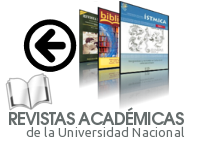Policies
Policies
Open access and reuse policy
This journal provides immediate free access to its content consistent with the principle of promoting knowledge sharing through making research in Social Studies and Civic Education available to the public, free of charge.
The Budapest Initiative for Open Access is observed (see http://www.budapestopenaccessinitiative.org/translations/spanish-translation), and “open access” is understood as the free availability of literature on the public Internet, allowing any user to read, download, copy, distribute, print, search or use it for any legal purpose, without any financial, legal or technical barriers, other than those that are inherent in the use of the internet itself. The only limitation on reproduction, distribution, and the sole role of copyright in this domain, should be to give authors control over the integrity of their works and the right to be properly credited and cited. The foregoing must be complied with within the framework of the Creative Commons license to which the journal Perspectives adheres (see: https://creativecommons.org/licenses/by-nc-sa/4.0/).
In this respect, the Revista Perspectivas: Estudios Sociales y Educación Cívica does not charge fees for submission, processing and publication of articles, and does not financially compensate authors or article reviewers for their contributions to the journal.
Section policies
The Revista Perspectivas publishes articles pertaining to Social Studies and Civic Education and works related to teaching and learning processes in the social sciences and the humanities in general, especially when it is considered that they are relevant to the analysis, consciousness raising, and criticism of contemporary social problems.
All proposals for publication, whether or not they are reviewed by anonymous external peers, must comply with the “Guidelines for authors”.
All proposals for publication must have keywords in Spanish, English and Portuguese.
The journal has two sections: a) Research and discussion (refereed articles) that involve an anonymous peer-review process of research or theoretical observations, and b) dialogues, which are non-refereed articles such as interviews, book reviews and other texts that do not have to be peer-reviewed.
Research and discussion section (peer reviewed articles)
Original and unpublished basic or applied research articles are published in this section, as well as interdisciplinary works with theoretical perspectives based on the didactics of the social sciences, whose contents and theoretical-methodological approach make an innovative and significant contribution to the existing body of knowledge related to the teaching or learning processes in the fields of Social Studies and Civic Education.
These works must therefore contain concrete conclusions and results based on research advances or systematization of experiences arising from scientific research, graduation theses, presentations, symposiums, etc. Original and unpublished works dealing with critical reflection on the praxis of Social Studies and Civic Education are also included, as well as interdisciplinary fields related to the didactics of social sciences, systematization of classroom experiences and critical essays about didactic experiences related to the focus and scope of this magazine. This section requires anonymous peer review.
Research data section (refereed section)
What are historiographic data articles?
In this section we publish historiographic or related data articles and, therefore, they are far from being conventional scientific articles. Unlike the latter, data articles consist of the description, characterization, contextualization, and justification of the viability and theoretical-methodological relevance of the various primary sources that professionals in history and other social sciences consult, systematize, and use in their research. In other words, critical balances on the particularities, methodology, theoretical interpretation, limitations, and potentialities of historical primary sources of various kinds (documentary, iconographic sources, audiovisual material, among other collections), presentations and brief analyses of quantitative (agricultural and demographic censuses, statistical yearbooks, etc.) and qualitative (interviews, life histories, photographs, etc.) databases useful for historical work are the type of articles to be published in this section.
Why do we publish data?
Among the main guiding principles underpinning the publication of data articles, the following stand out:
Public funding: Historically, Latin American journals were founded as non-profit publication media, and have remained so, because most of the research studies published in them has been financed with public funds and by public universities themselves. Generally, the authorship of these research works published in Open Access were written by the scientists themselves who work for Latin American public universities and who, as civil servants, choose to publish in Open Access journals.
Open Science and reproducibility-replicability of science: As recommended by UNESCO (2021), Open Science implies a paradigm seeking to ensure reproducibility, free exchange, discussion, and collaboration resulting from scientific research processes. In such manner, the criteria of transparency and Open Access are also met when sharing data collected or generated from research activities. In this sense, Open Science is understood as an "[...] inclusive construct that combines diverse movements and practices in order to make multilingual scientific knowledge openly available and accessible to all, and reusable by all, to increase scientific collaborations and information exchange for the benefit of science and society, and to open the processes of creation, evaluation, and communication of scientific knowledge to social actors beyond the traditional scientific community." UNESCO (2021)
Open research data: Any data collected, interpreted, and systematized as a product of scientific research has the potential to be shared with the public for free and immediate use in their own research activities. In other words, there can be no reproducibility-replicability of science if the data produced by it are kept under restricted access or, at all, their consultation and circulation are prohibited. As recommended by UNSECO (2021), open research data "includes, among others, digital and analog data, both raw and processed, and accompanying metadata, as well as numerical indices, textual records, images and sounds, protocols, analysis codes, and workflows that can be openly used, reused, preserved, and redistributed by anyone, provided there is an acknowledgement. Open research data are available in a timely manner, in a user-friendly, human- and machine-readable and modifiable format, in accordance with the principles of good governance and management of data, primarily the FAIR (Findability, Accessibility, Interoperability, and Reusability) principles, supported by regular curation and maintenance."
Peer Review
The articles proposed for this section will be reviewed by anonymous peers. For this purpose, a specific review format will be provided to reviewers to certify the originality, feasibility, and relevance of the submitted texts, as well as the formulation of criticisms or recommendations.
Requirements and structure
To ensure that research data and the scientific research itself are reproducible and/or replicable, all articles submitted for this section should be guided by the requirements below. For this purpose, necessary guidance will be provided.
|
Requirement |
Explanation |
Required |
Optional |
|
Basic rules of the journal |
Comply with the basic standards stipulated in the journal's "Guidelines for Authors". |
✓ |
|
|
Glossary |
Clarify basic concepts for understanding data and sources. |
✓ |
|
|
Acronym |
If the data are very voluminous and mention various names of persons, institutions, etc., it is possible to include an index of acronyms to facilitate reading. |
|
✓ |
|
Storage in Open Access repository |
Authors whose institutional affiliation is the National University of Costa Rica (UNA) must upload and store their research data in the Institutional Academic Repository (RAI). Authors from outside the UNA have to upload and store data in the repository of the institution where they work or, failing that, in Zenodo. The hyperlink generated in the repository (DOI, URI, HANDLE, must be added to the document to be published on the journal's web page). |
✓ |
|
|
Data management plan |
The data set should be accompanied by the data management plan developed during the research. |
|
✓ |
|
FAIR storage format |
The format used to upload and store data in the repositories must meet the FAIR (Findability, Accessibility, Interoperability, and Reusability) criteria and, therefore, be consistent with Open Access. |
✓ |
|
|
Creative Commons Licensing |
A Creative Commons license must be assigned to the set of data uploaded and stored in the repository, so that users can check the use-reuse rights (whether or not to allow derivative works) according to copyright. |
✓ |
|
|
Ethics and data anonymity |
When processing data that may put the integrity of individuals at risk, or when it is necessary not to reveal their identity, the data must be anonymized. For example: photographs, interview transcripts, correspondence, etc. |
✓ |
|
|
By way of introduction: contextualization, description and reading guide |
Answer the following question: how and where are the data from? How to read them or understand the information they provide? Give details of the basic data of the sources, such as authorship, date, type of source, origin, edition or reprint number, format, location, among others. In addition, it should contain, if necessary, a reading guide on how to interpret and use the data. |
✓ |
|
|
Methodology |
Answer the following question: how were the data systematized and interpreted? Explain the heuristic and hermeneutic procedure applied to the sources from which the data were obtained or created. Also, include the procedure of processing, systematizating, interpretating and constructing the data. |
✓ |
|
|
Recommendations for use and reuse |
Answer the following question: how to use use of the data? What the data are for? Explain the functionality of the data according to their viability and relevance, in addition to demonstrating their potentialities or disadvantages, among other aspects to be considered, for the investigation of specific topics or problems in accordance with their characteristics. |
✓ |
|
|
Conclusions or final considerations |
To make a critical reflection on the previously described sections, emphasizing the viability and historiographic relevance of the data, pending challenges, and possible lines of research. |
✓ |
|
|
Acknowledgments and acknowledgments |
Acknowledge the work and authorship of the people involved in the collection, systematization and interpretation of the data. |
|
✓ |
|
References |
List references to primary and secondary sources according to Chicago-Deusto style. |
✓ |
|
Dialogues section (not peer reviewed)
This section includes reviews of books, interviews or essays related to Social Studies and Civic Education. Does not require anonymous external peer review.
Plagiarism detection policy
To detect malpractice, forms of plagiarism or any other bias that may harm and contravene the standards of this publication, before submitting the article proposals to the editorial process and the arbitration system:
A first review filter is applied according to which the texts are entered in the Google search engine to detect similarities with already published texts, inconsistencies in citations, discrepancies in the data presented, etc. Subsequently, proposals of applicants are subjected to a second plagiarism prevention filter through the Turnitin service.
If problems with citations explicit omissions are encountered, or any other evidence that raises doubts about the originality and unpublished nature of the article is found, the document will be rejected without the right of appeal, and the interested party will be informed immediately through a letter explaining in detail the reasons for the decision.
At the same time, compliance with the guidelines for authors is verified, which are mandatory for all types of proposals without exception.
In those cases in which it is determined that the inconsistencies are minor, fortuitous and can be corrected without major complications, the article will be returned so that the necessary corrections can be made in a period not exceeding 8 business days. After the changes have been incorporated, the author can resubmit his or her proposal to the Editorial Board to decide whether or not it will be submitted to the editorial process and peer review.
The “Plagiarism Detection Policy” conforms to the Code of Ethics of this journal without exceptions.


_11.55_.09_a_._m_._.png)
_1.34_.01_p_._m_._2.png)
_9.45_.02_p_._m_._.png)




_2.23_.09_p_._m_._.png)
_2.35_.17_p_._m_._.png)

